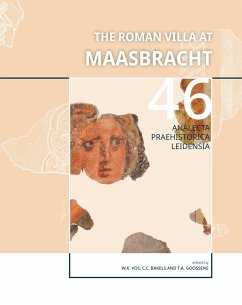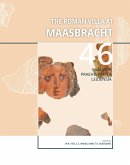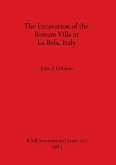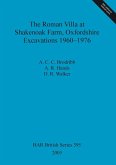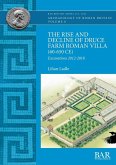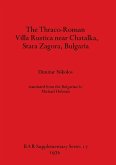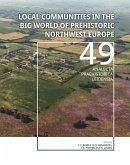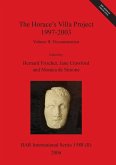In the Dutch archaeological community, the Roman Villa of Maasbracht has become famous for the beautiful remains of murals that have survived to this day. Almost all of this material was found in the infill of the stone cellar, a veritable time capsule that has been excavated with much patience and care. The first field campaign in 1981 consisted of some four trial trenches excavated by members of the local archaeological society. These yielded amongst others foundation trenches of walls and floors of mortar and rubble from the Roman period. This was in 1982 cause for the State Service for Archaeological Research to join forces and to begin a full scale excavation covering 0.8 ha. The most important result was the uncovering of a stone main building of a Roman villa complex. After the excavations, the villa has been left on the shelf as one of the investigations of interest from Roman times with the prospect of one day being further analysed. The opportunity at last presented itself and this has resulted in the present volume. The names of the chapters are self-explanatory: settlement traces and structures, pottery, the building material, the wall painting fragments, animal remains and bone artefacts, glass and jet, the metalwork and of course a synthesis. The part of the book that appeals most to the imagination is of course the chapter on the wall paintings, beautifully illustrated with 58 colour figures. ContentsPrefaceM.J. Versluys1 IntroductionW.K. VosW.J.H. Willems2 Settlement traces and structuresW.K. Vos3 PotteryE. van den Brink4 The building materialA.E. Gazenbeek5 The wall painting fragmentsL.J.F. Swinkels6 Animal remains and bone artefactsE. EsserF.L. LaarmanM.J. Rijkelijkhuizen7 Glass and jetS.M.E. van LithM.J. Driessen8 The metalworkM.J. Driessen9 SynthesisW.K. VosW.J.H. WillemsReferences
Hinweis: Dieser Artikel kann nur an eine deutsche Lieferadresse ausgeliefert werden.
Hinweis: Dieser Artikel kann nur an eine deutsche Lieferadresse ausgeliefert werden.

